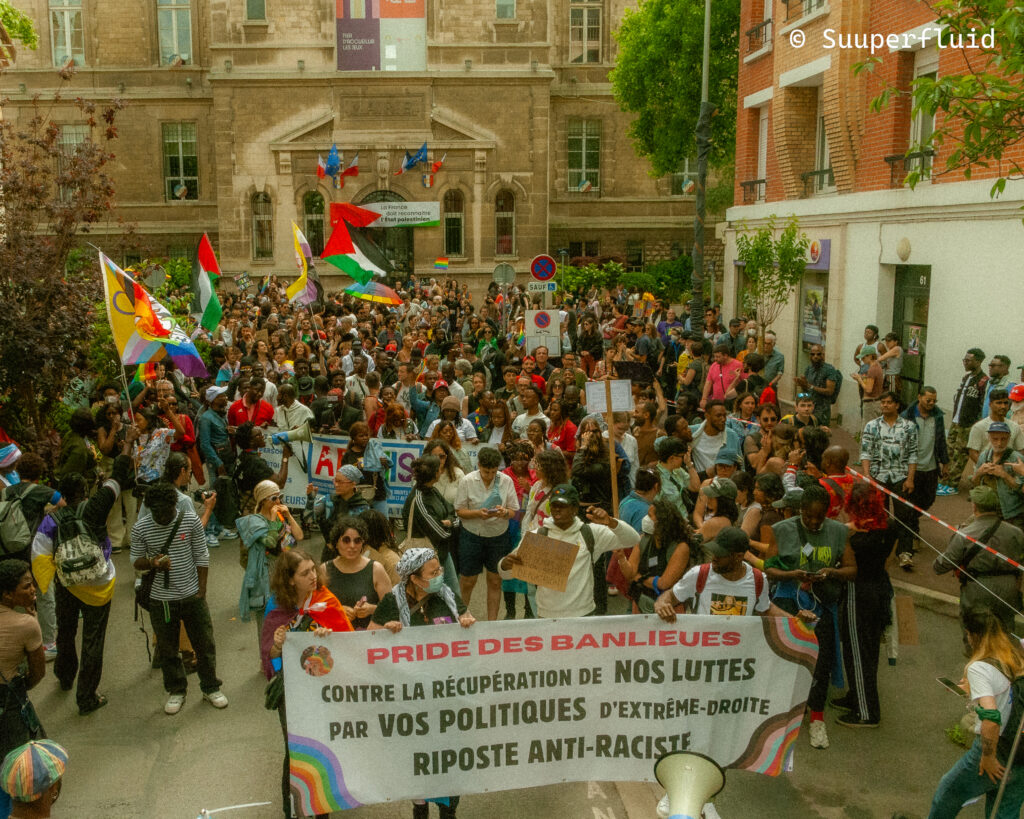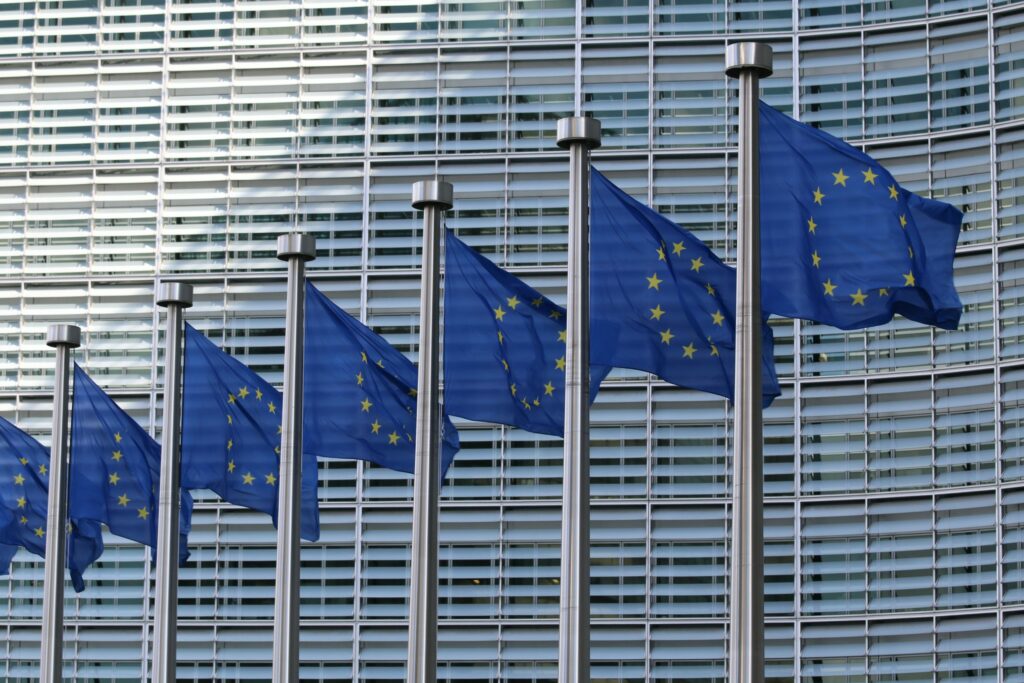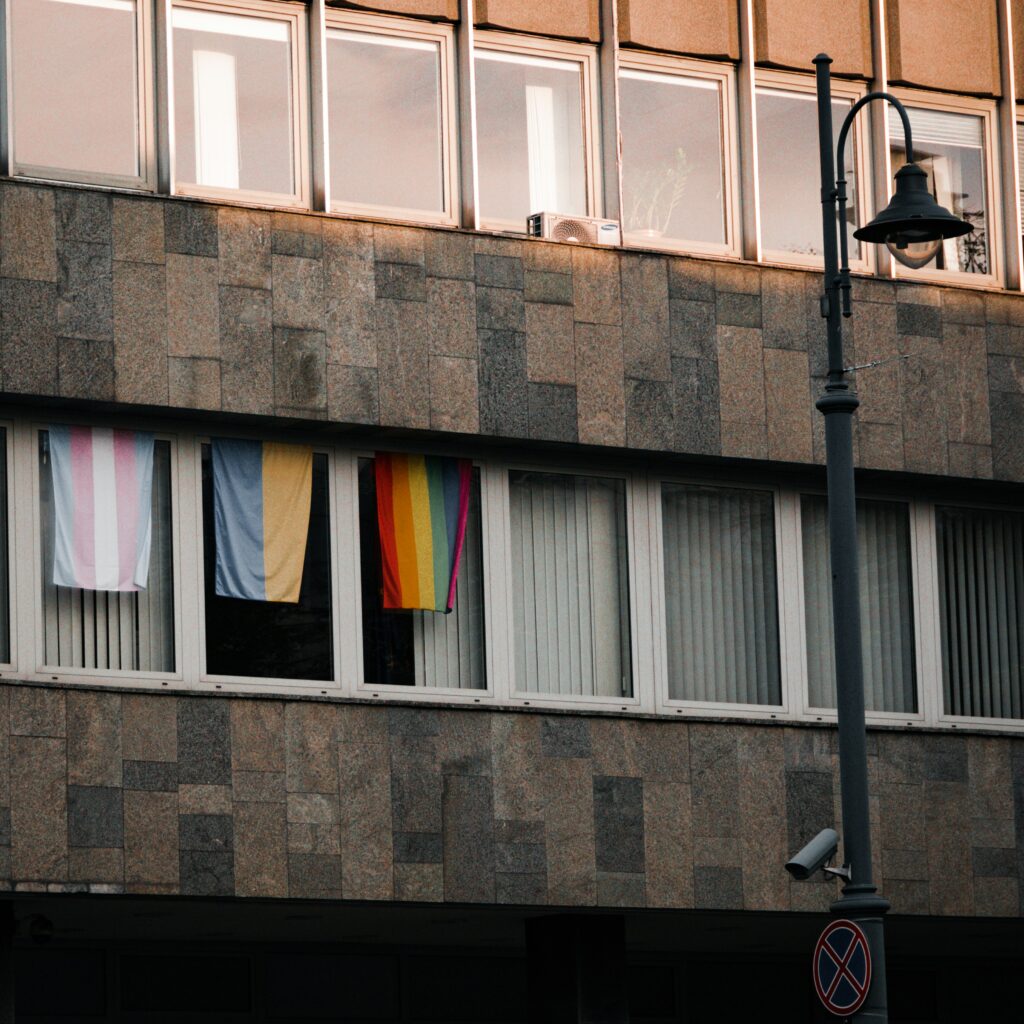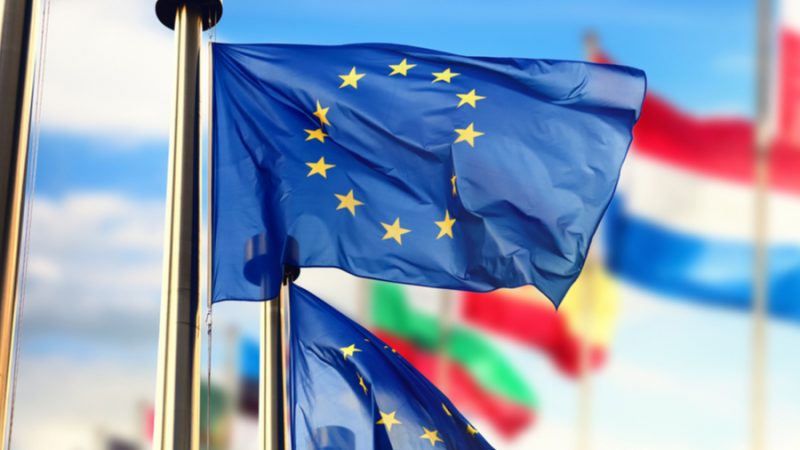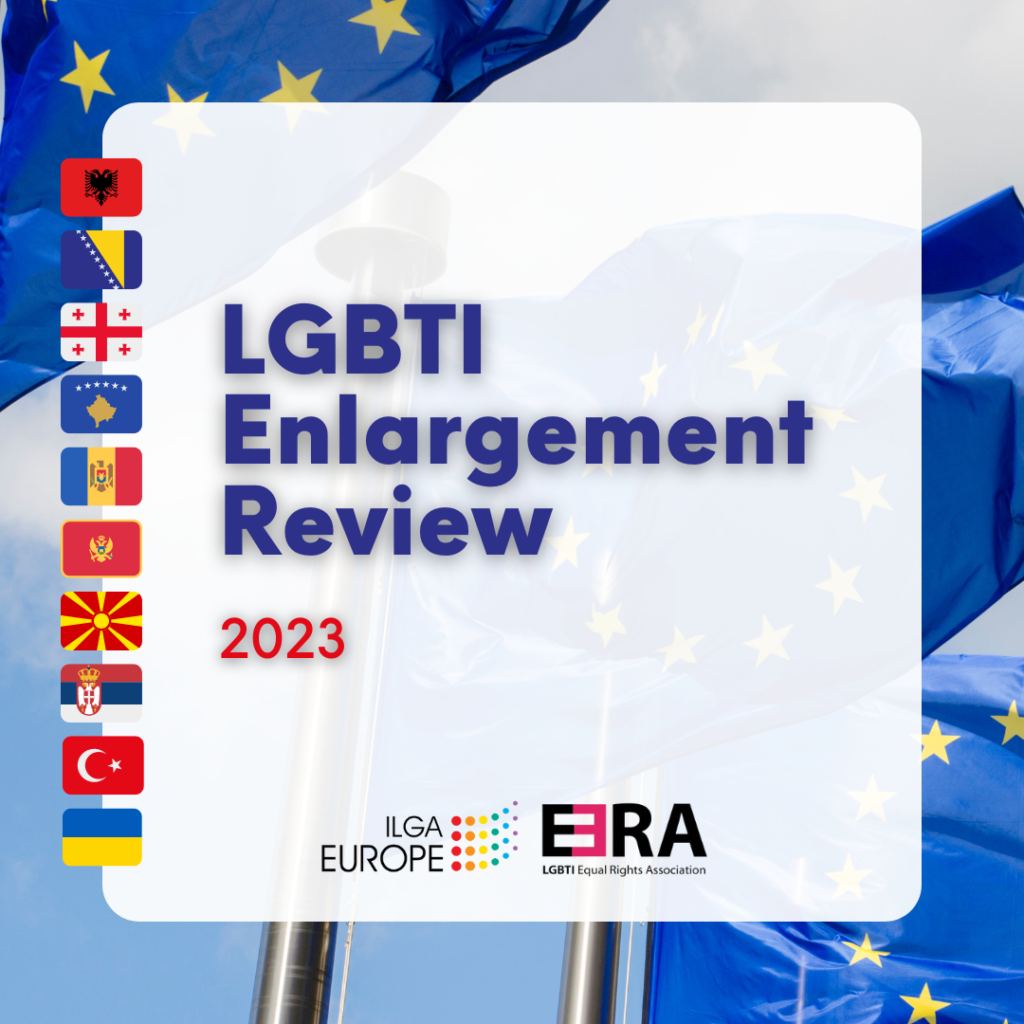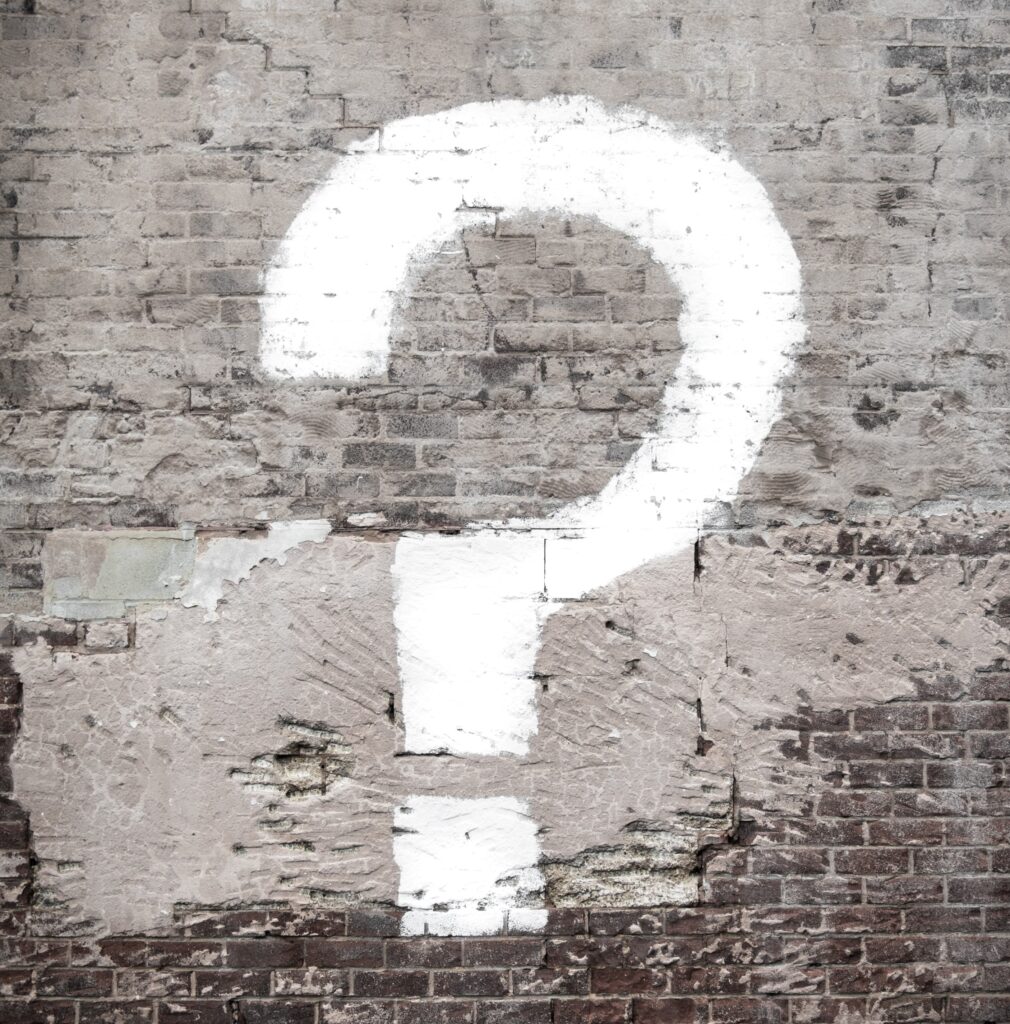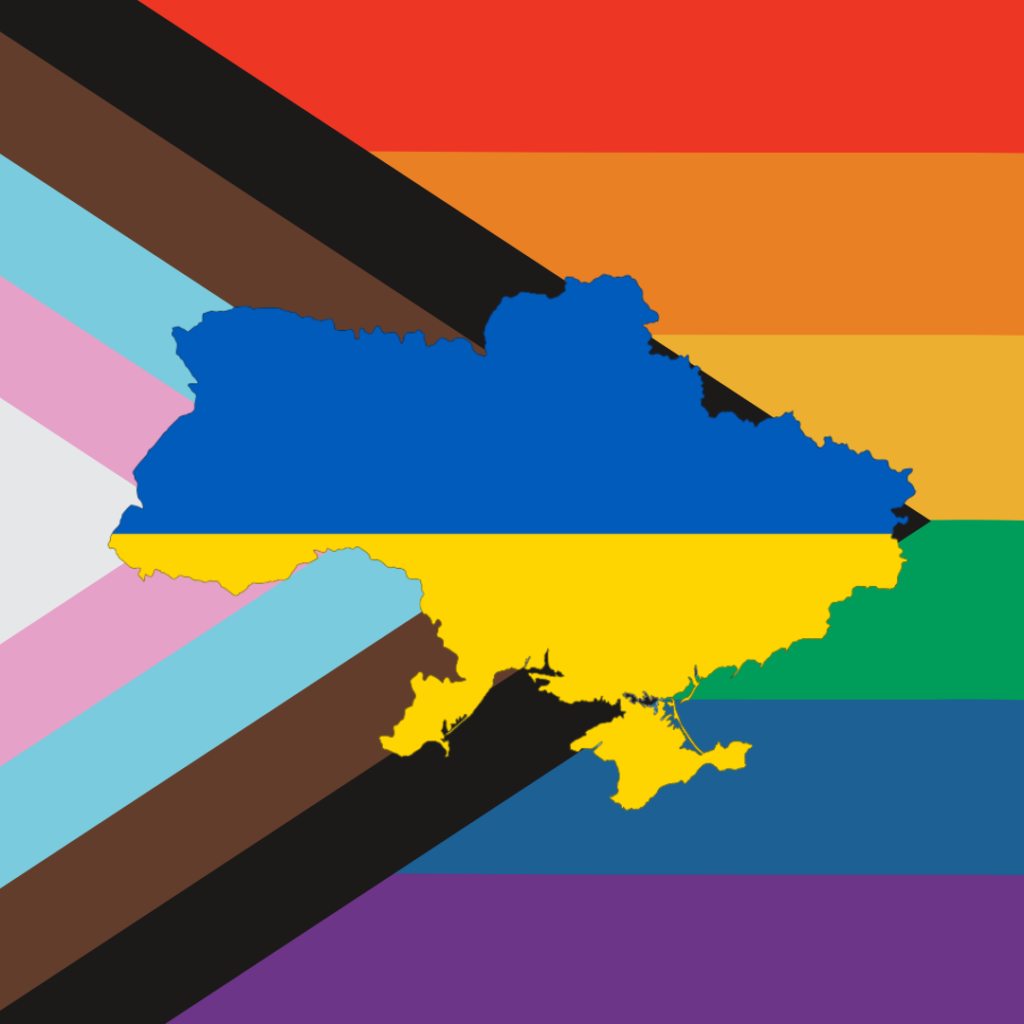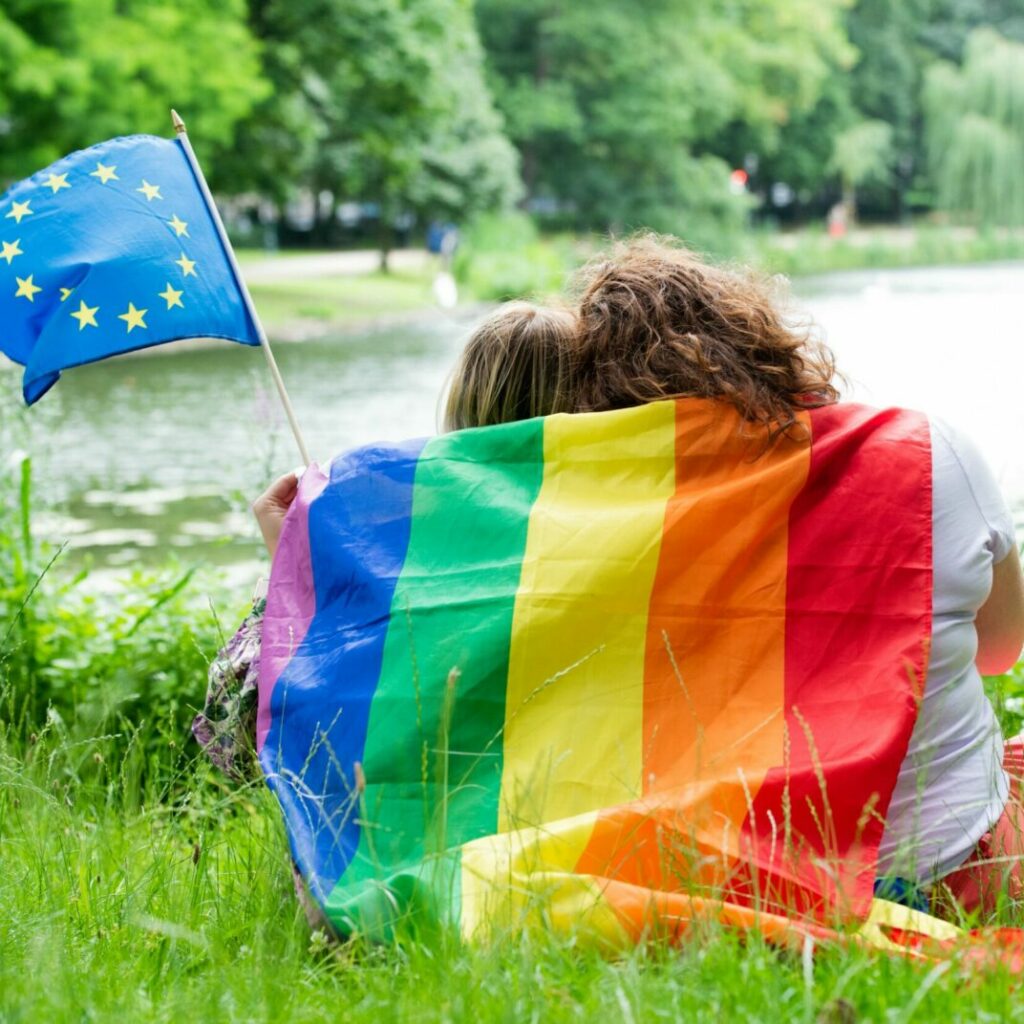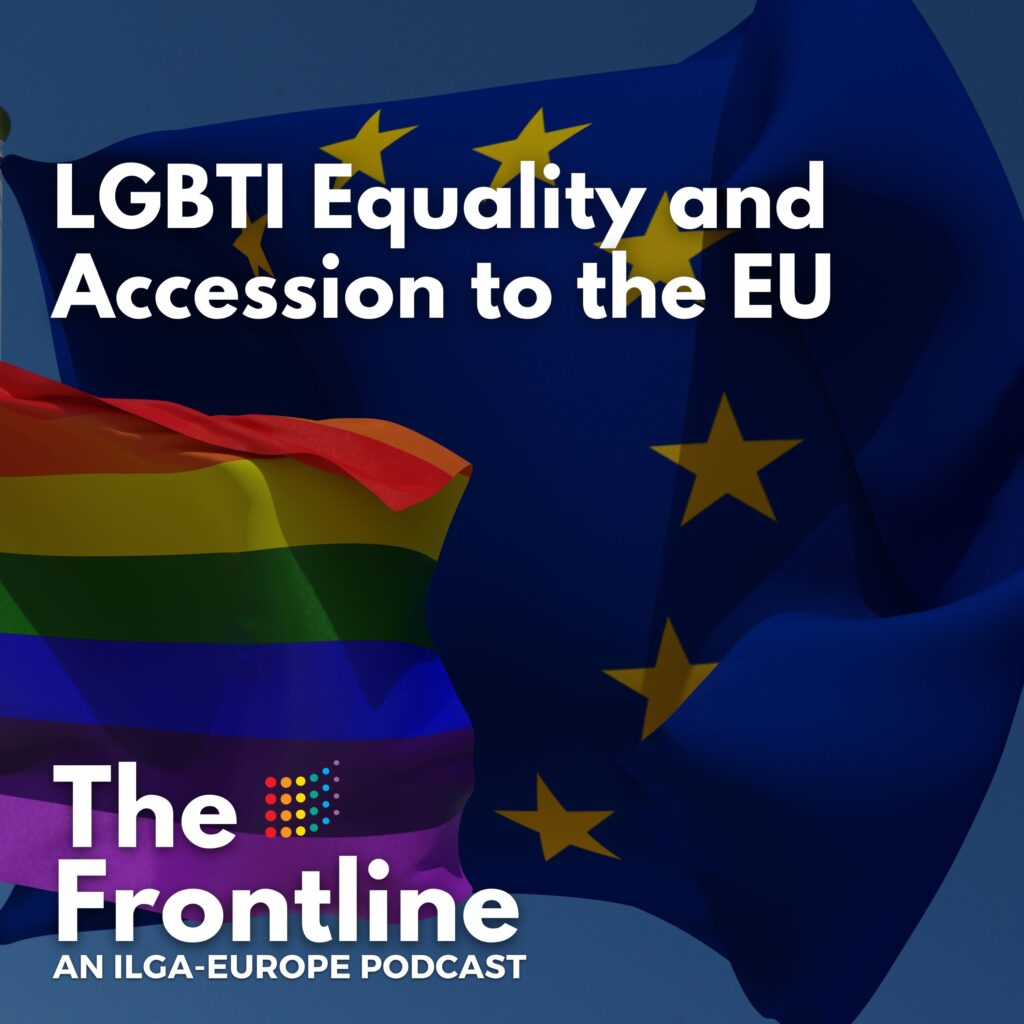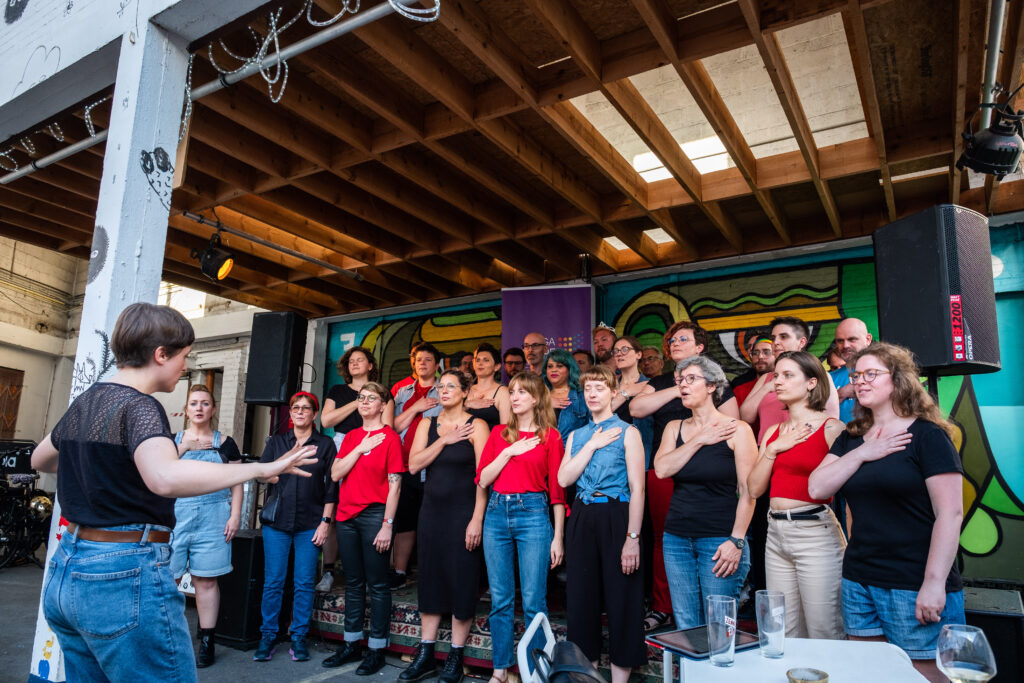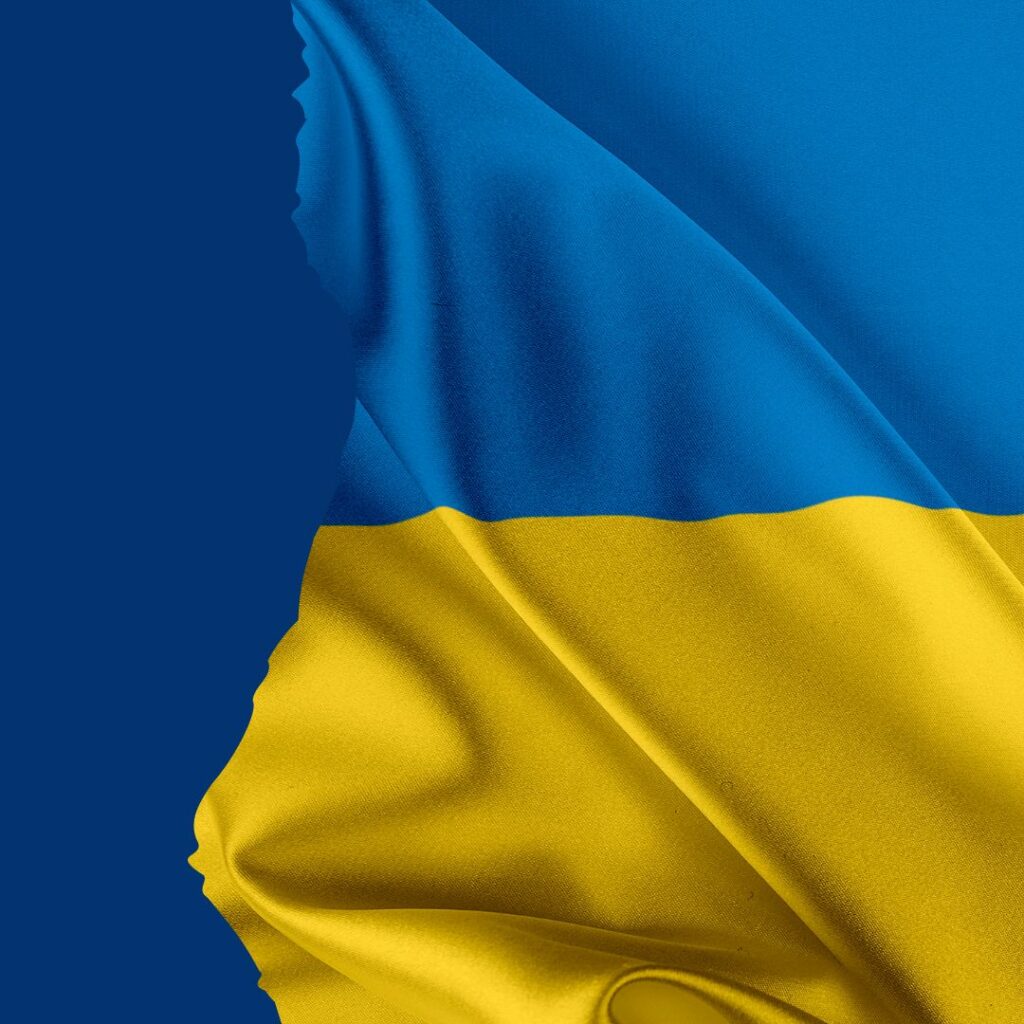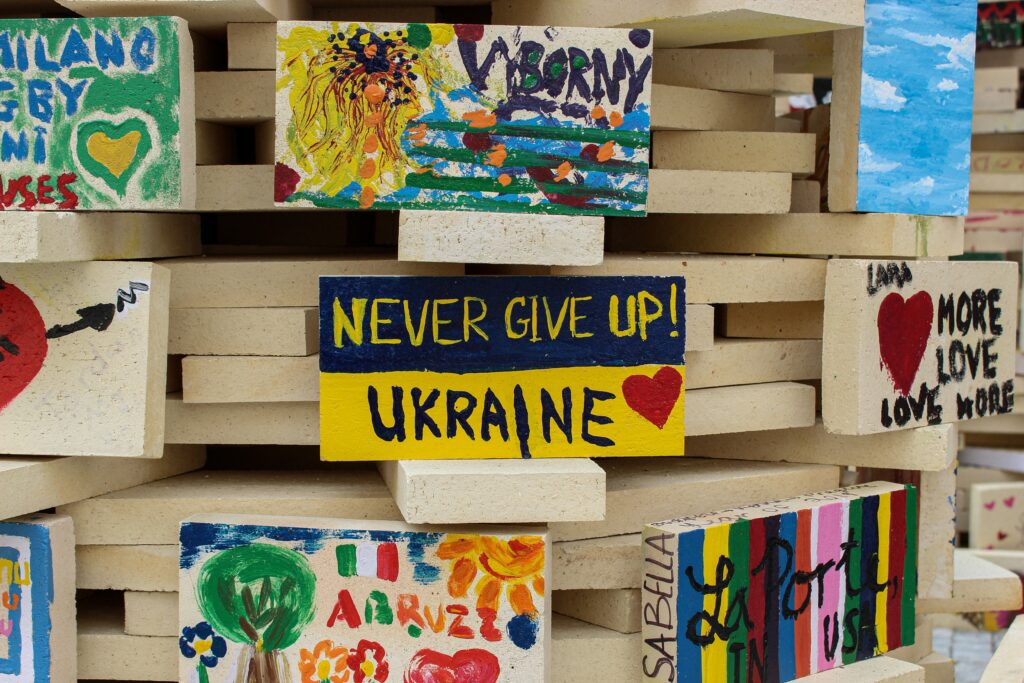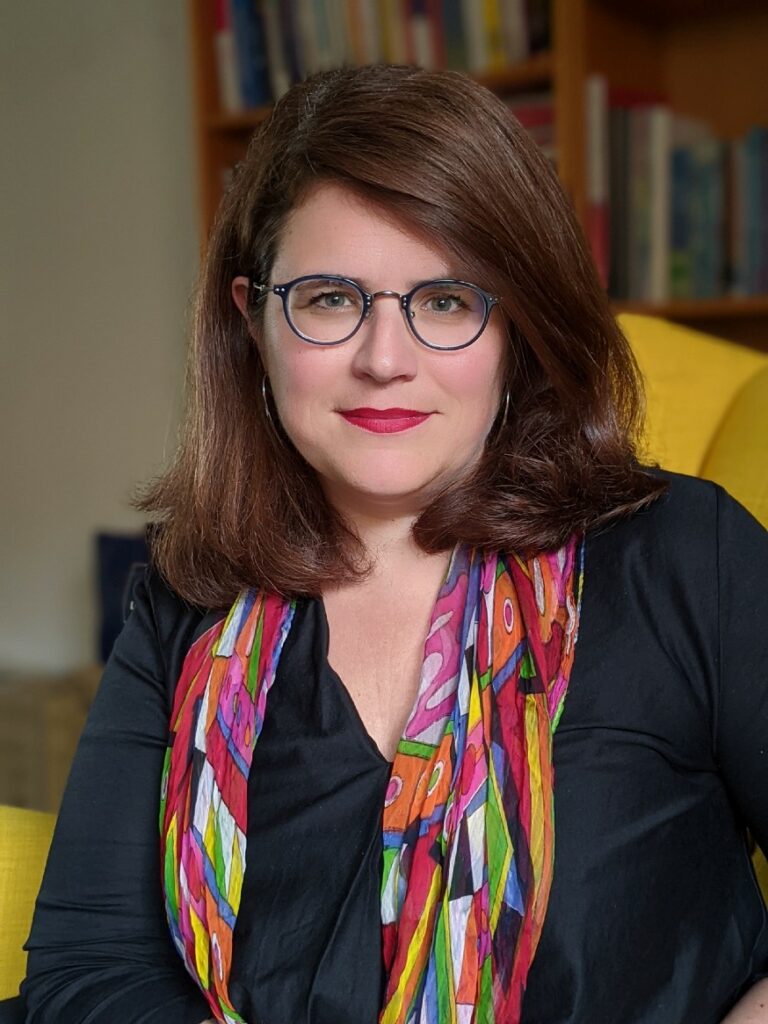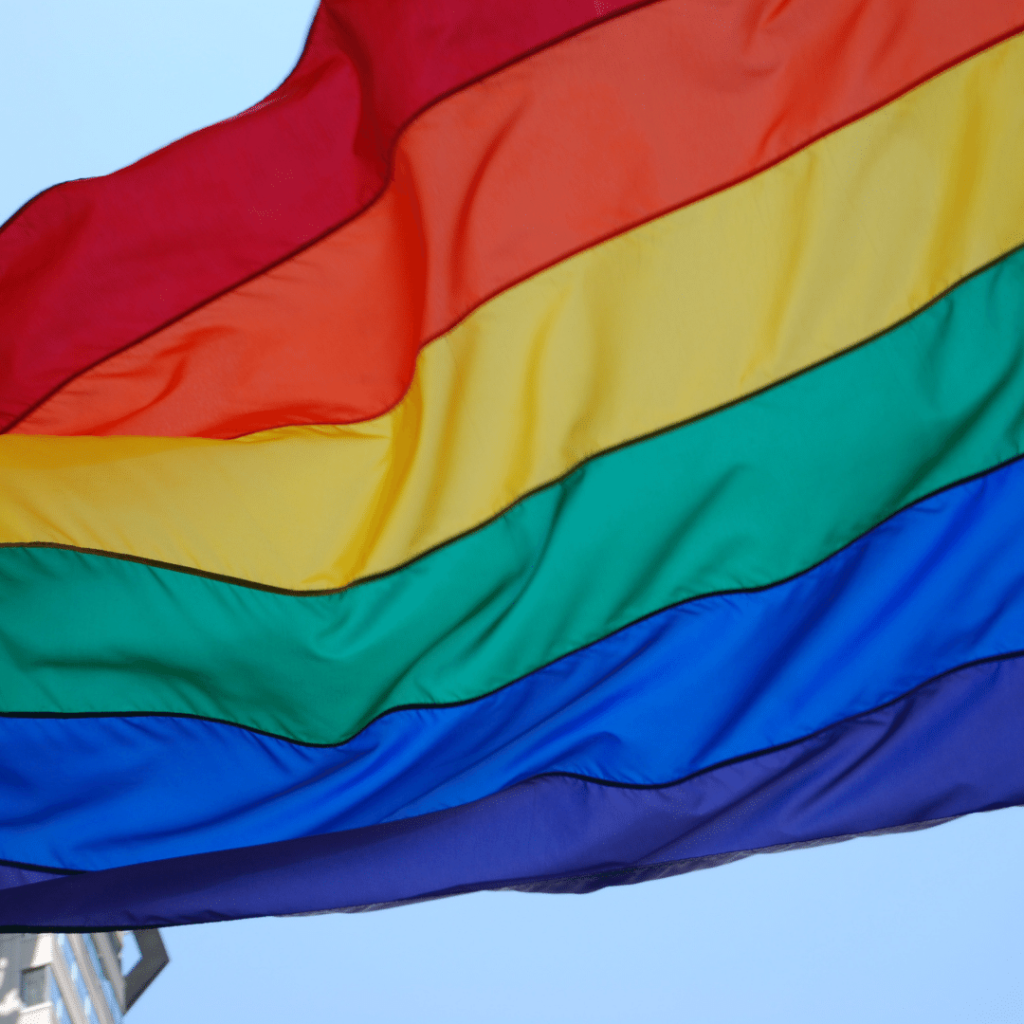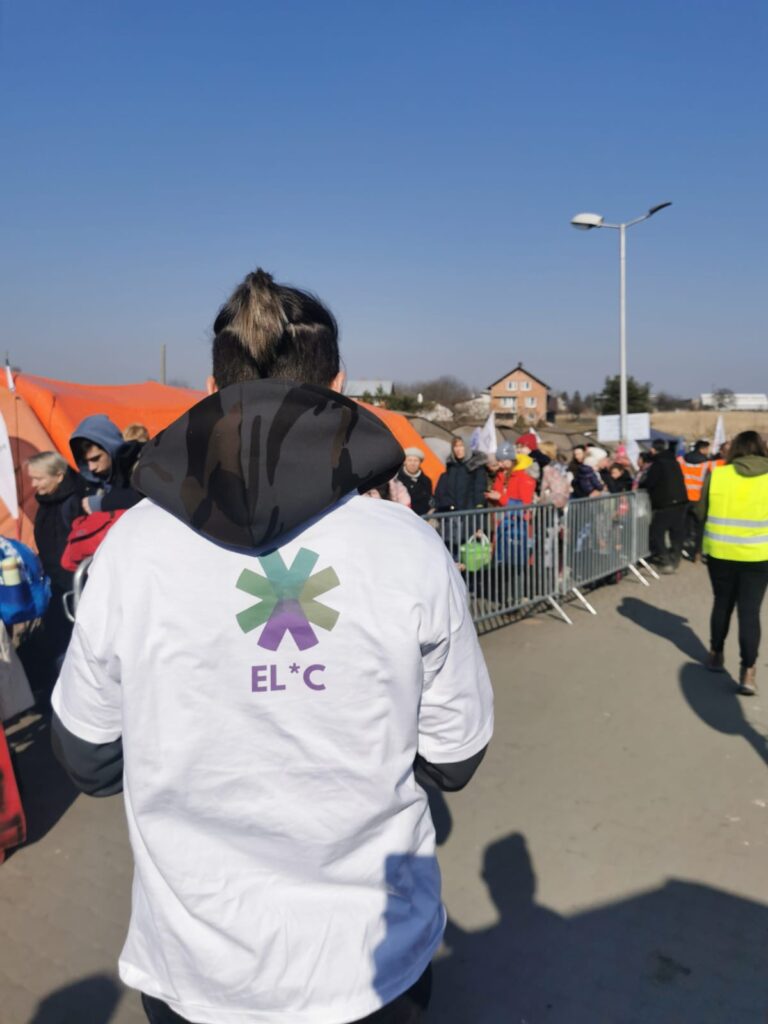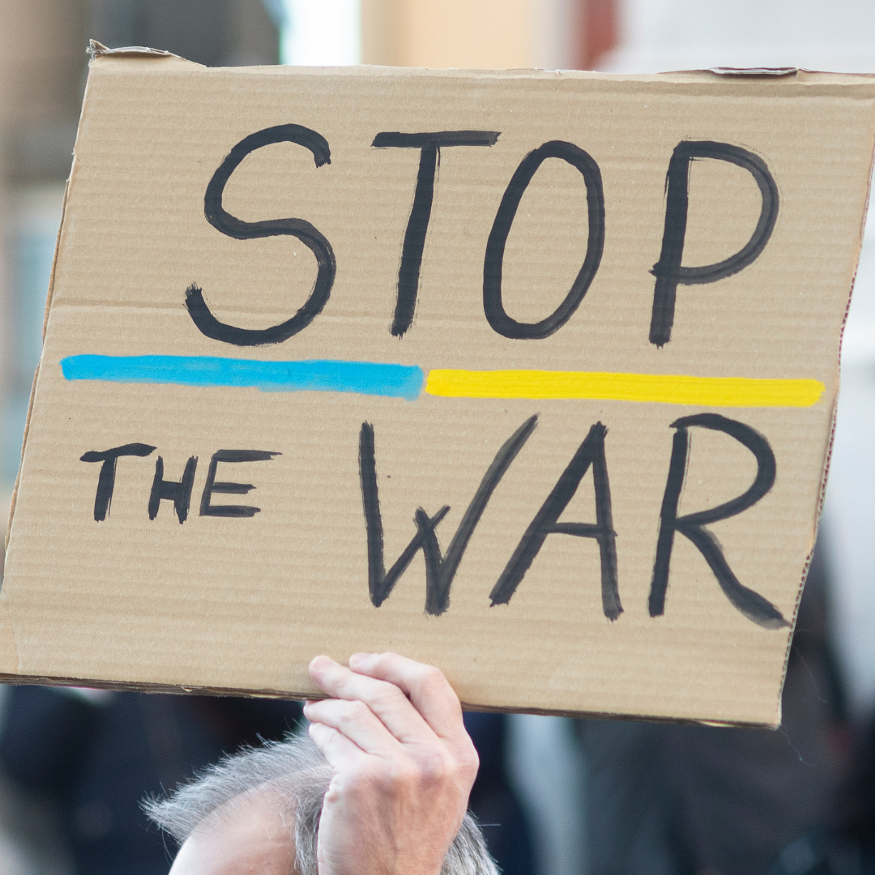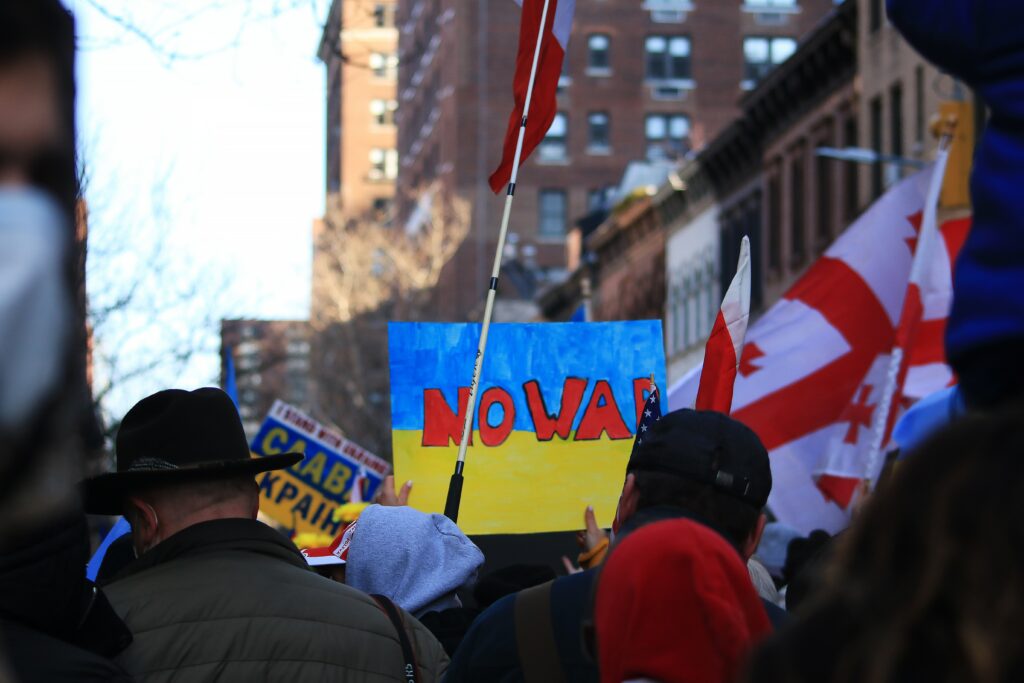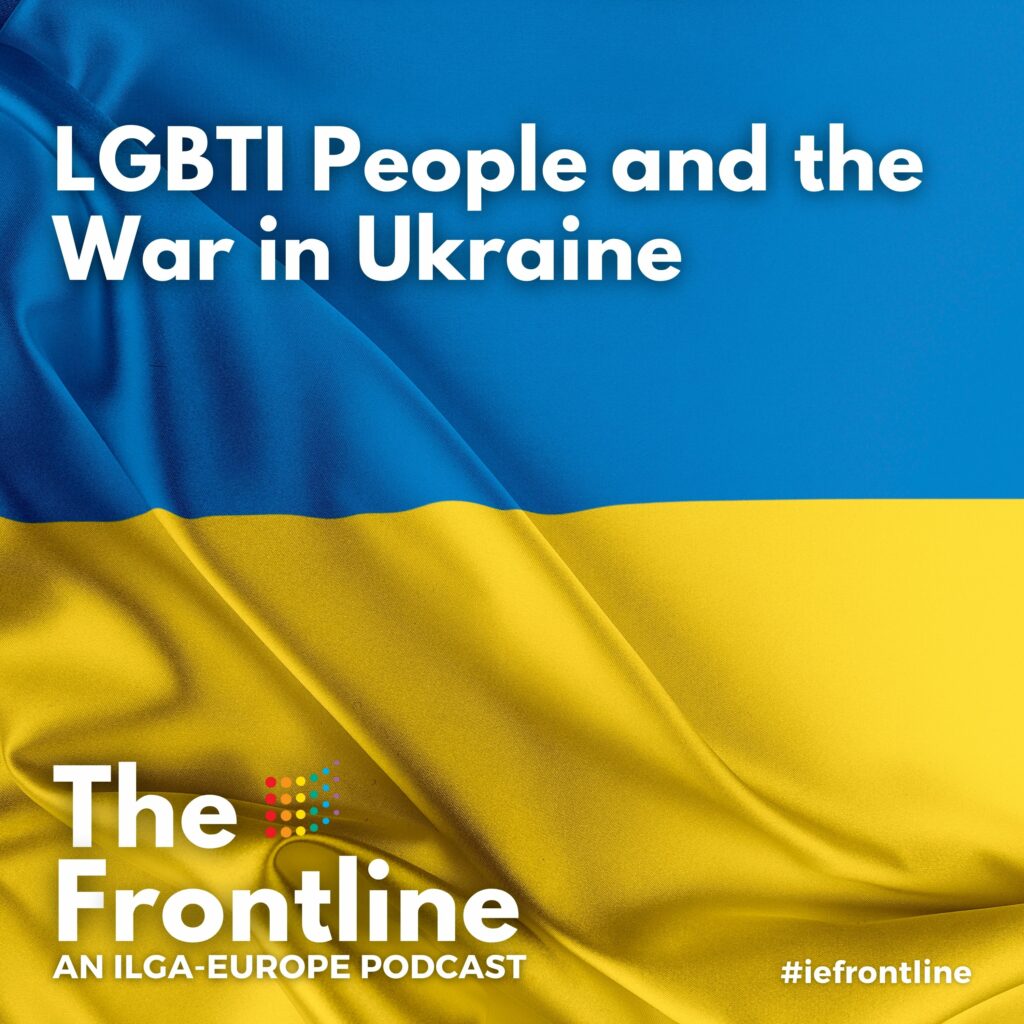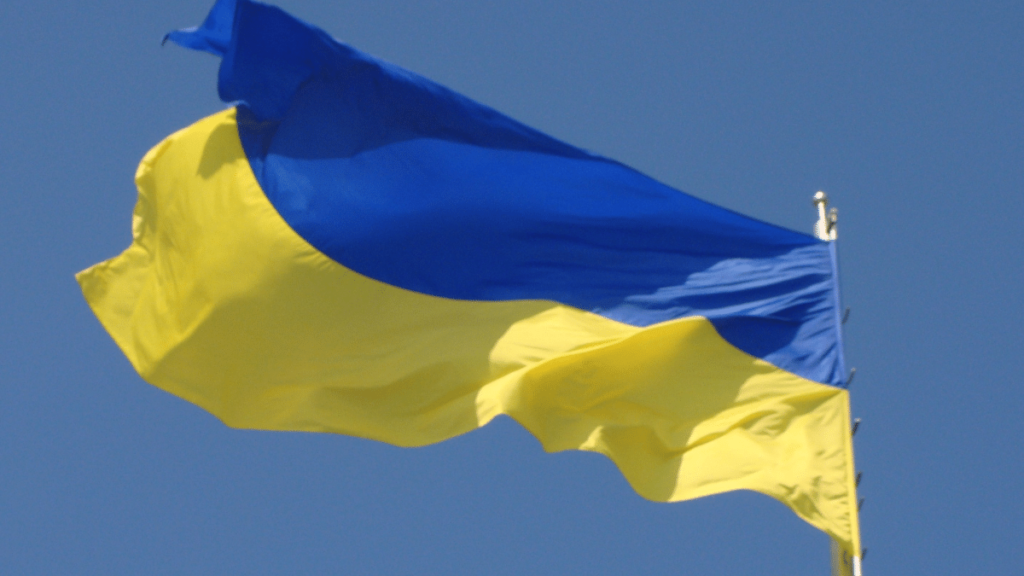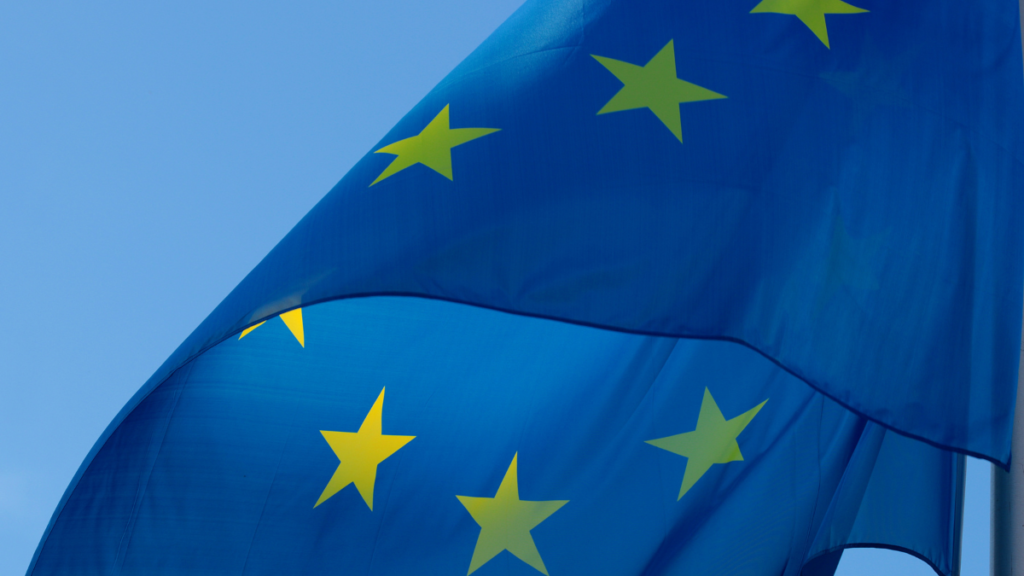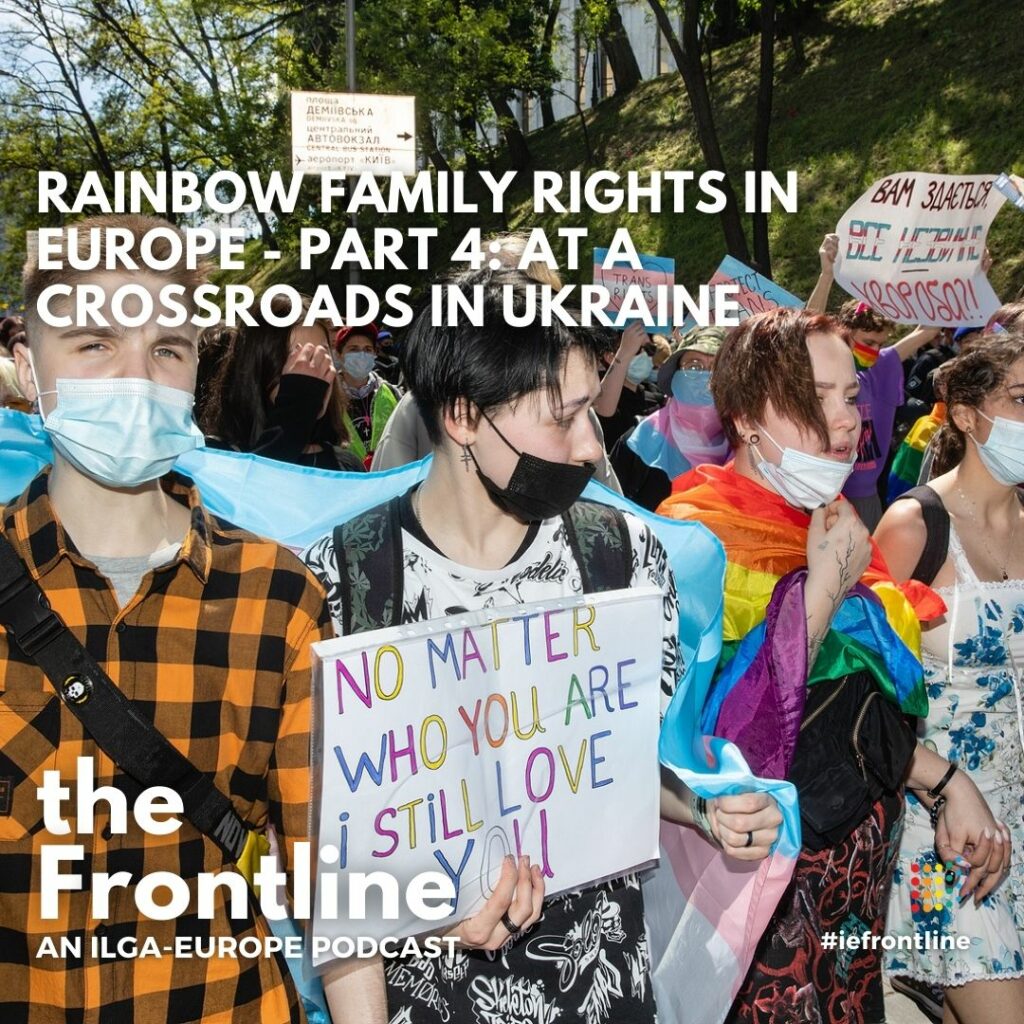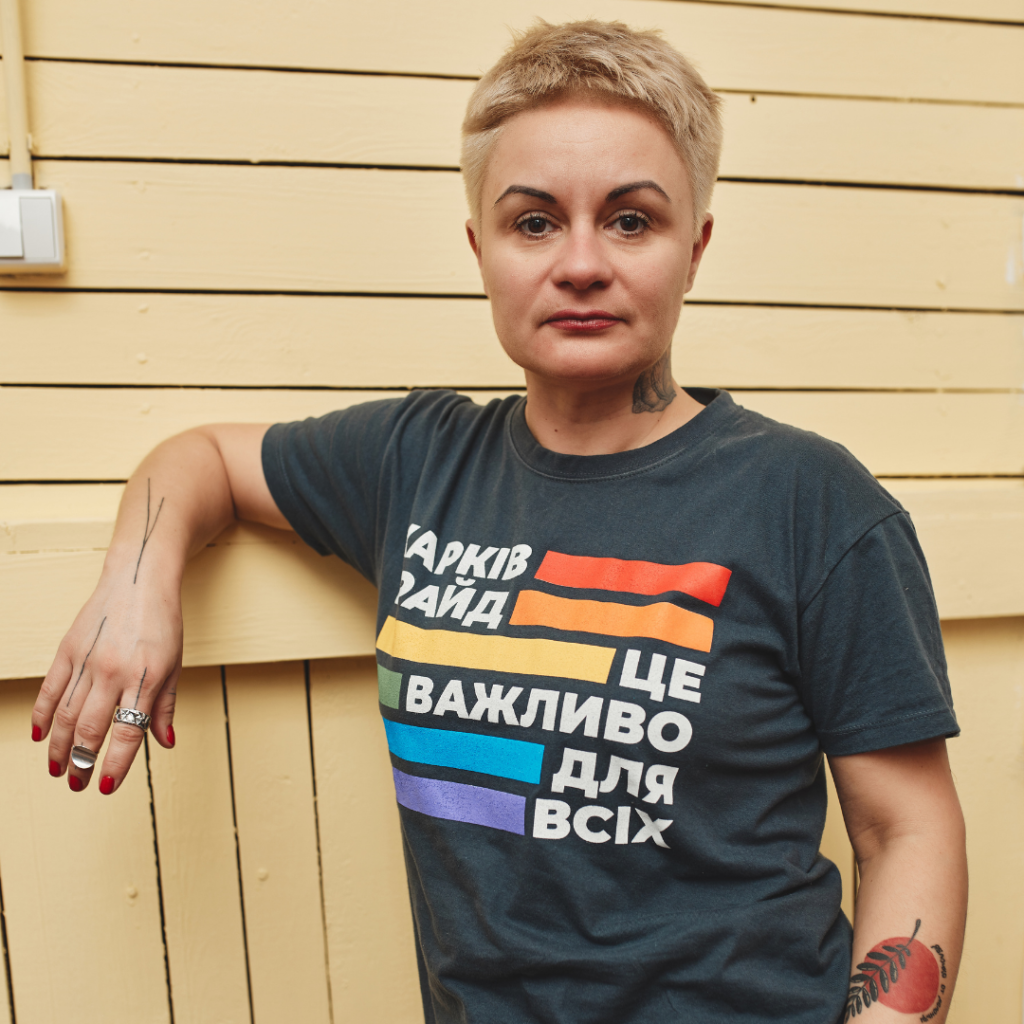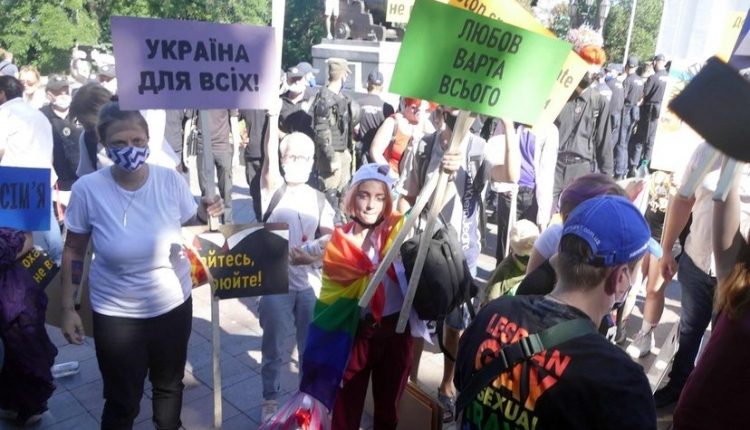Ukraine
Categories Score
The full bar chart stands for 100%, and is filled by the country category score. The colour display uses the traffic light palette, with Green representing a score closer to 100% and Red a score closer to 0%.
ASYLUM
This category looks into laws that expressly include SOGISC as a qualification criteria for seeking asylum. We also take into account other legislation, policies, instruction or positive measures by state actors that are related to asylum addressing the needs and rights of LGBTI asylum seekers and refugees.
Criteria Compliance Ratio
Each pie charts stands for a category and is divided in slices by criteria. When a country complies with a criteria – fully or in some regions – the slice is coloured.
Keep in mind the criteria have different weighting factor within a category; for example, the criteria Prohibition of medical intervention without informed consent (intersex) stands for half (2.5%) of the INTERSEX BODILY INTEGRITY category weighting factor (5%). Meaning that even if a country can only comply with this specific criteria within the category (1/4 total criteria) the category scores 50%.
More information on the categories and criteria weighting factors here.
Category & Criteria Table
The table lists detailed information and insights on legislation supporting each criterion status. Please use the filters for in-depth analysis.
n/a = not applicable, meaning the criteria didn’t exist in the previous Rainbow Map edition (PROGRESSION column)
- Complies
- Applicable in some regions only
- Does not Comply
RECOMMENDATIONS
In order to improve the legal and policy situation of LGBTI people in Ukraine, ILGA-Europe recommend:
- Adopting legal measures to ensure registered partnerships for same-sex couples.
- Adopting hate crime laws that explicitly cover all bias-motivated crimes based on sexual orientation, gender identity, gender expression and sex characteristics.
- Depathologisation of trans identities.
- Increasing resources available to aid LGBTI people who suffered because of the war.
Annual Review of Ukraine
In our Annual Review of the Human Rights Situation of LGBTI People in Europe and Central Asia, we examine the advances made and provide concrete examples of on-the-ground situations at national level country-by-country in the 12 months from January to December 2023.
Read our Annual Review of Ukraine below for more details and stories behind the Rainbow Map. You can also download the Annual Review chapter (.pdf) covering Ukraine.
During the third year of Russia’s full-scale, Ukraine’s LGBTI community faced intensified challenges while continuing to demonstrate resilience. The ongoing war has exacerbated pre- existing issues such as discrimination, displacement, and limited access to essential services, all of which disproportionately affect LGBTI people. The conflict has also underscored the pressing need for legal recognition of same-sex partnerships, particularly for LGBTI military personnel whose partners lack rights to make critical decisions or access state support in cases of injury or death. Despite constitutional prohibitions on same-sex marriage and resistance to civil partnership legislation in parliament, public attitudes toward LGBTI equality have continued to shift, driven in part by the visible contributions of LGBTI people on the front lines. In the face of these adversities, Ukraine’s LGBTI community remains steadfast in advocating for legal and social reforms, even as the war compounds the urgency of addressing these inequities.
-
In 2024, access to goods and services for LGBTI people in Ukraine remained a critical issue, influenced by both the ongoing conflict and societal attitudes.
The ongoing war in Ukraine has exacerbated the already difficult circumstances for many trans people. Rising inflation and the economic downturn have made access to medical treatment increasingly inconsistent, with the costs of hormone therapy escalating significantly.
During the first half of the year, five cases of discrimination based on sexual orientation and gender identity were reported by the Nash Svit Centre. These included: refusals of service, denial of rental agreements, illegal evictions, biassed treatment, as well as insults, humiliation, and threats.
The Handbook on Preventing and Combating Discrimination by Iryna Fedorovych was published, to support civil servants and service providers in Ukraine, as part of the Combating Hate Speech in Ukraine initiative under the Partnership for Good Governance project.
In August, CARE International, in collaboration with the Gender in Humanitarian Action Working Group (GiHA WG), released the Rapid Gender Analysis Ukraine (RGA). It highlighted the gendered impacts of the ongoing war, particularly the compounded vulnerabilities of women, children, Roma communities, and LGBTI people, and underscored the need for gender-sensitive humanitarian programming.
-
A policy brief by Gender Stream, for the Global Public Policy Institute highlighted the severe impact of Russia’s full-scale invasion on the lives of LGBTI IDPs in Ukraine. The study underscored that LGBTI IDPs contend not only with the general difficulties of displacement but also with heightened risks of queerphobic violence and stigma. The study further confirmed that no centralised action exists to specifically assist LGBTI Ukrainians arriving in the EU due to the war in Ukraine and that there are no dedicated programmes at the national level of host countries to help them with border crossing, arrival, accommodation, and integration.
-
In March the National Council of Ukraine on Television and Radio Broadcasting determined that the online publication of an article entitled ‘LGBT Movement and Pedophilia: A Historica Connection’ by the movement All Together! violated the Law on media, following a complaint from Nash Svit Centre. Article 36 of the law prohibits the dissemination of content that incites discrimination based on sexual orientation or gender identity. The Council has required the organisation to address these violations. On March 14, All Together! challenged this order by appealing to the Kyiv District Administrative Court, which has yet to rule on the case.
-
Since 2021, civil society groups have advocated for Draft Law No. 5488, which aims to define “intolerance” as an aggravating factor in offences, including those based on gender and sexual orientation. Throughout 2024, organisations including Gender Stream engaged national and international stakeholders, leading to official appeals from the European Parliament and Commission. On the draft law’s third anniversary, over 35 human rights organisations issued a joint appeal to the Verkhovna Rada, urging its adoption. In October, Gender Stream, alongside the Council of Europe and Ukraine’s Commissioner for Human Rights, hosted a forum where the Ministry of Internal Affairs voiced clear support, emphasising its importance for vulnerable groups and Ukraine’s international obligations. Despite this, the draft law remains under review, reflecting ongoing legislative stagnation.
In the first half of 2024, the Nash Svit Centre reported a notable rise in homophobic and transphobic aggressions, with 29 incidents compared to 25 in all of 2023. The increase included physical violence and attacks on LGBTI centres, events, and activists.
In February, the exterior of the Zhovten cinema, which was set to show Lessons of Tolerance, was vandalised with homophobic messages and nationalist symbols. Meanwhile, in Kharkiv, a group of youths tried to obstruct the film’s screening, using similar discriminatory slogans and imagery. On February 17, a screening of the movie took place regardless of the threatening acts.
In February, a lawyer from Gender Stream was assaulted by three people at a shopping mall in Kharkiv. The attackers forcibly removed an LGBTI flag patch from his clothing and issued threats of physical violence before fleeing the scene. The incident was reported to the police, who initially classified it as “hooliganism.” Despite Andriy’s appeals to have the incident reclassified as a hate crime, the Prosecutor’s Office did not find sufficient grounds to support this. The attackers remain unidentified, and no further action has been taken in the case.
In March, a gay man was violently attacked by a group of youths in a park in the capital after he declined to answer their question about his views on LGBTI issues.
In March, a gay couple residing in a Kyiv suburb was assaulted by two neighbours. The couple believes the attack was motivated by homophobia, noting that similar incidents had occurred previously.
From early April to late June, 21 incidents of bias-motivated violence across Ukraine were recorded by Freedom House.
In April a LGBTI couple was pursued and attacked in Kyiv by a group who shouted homophobic slurs and threatened to beat the couple before physically assaulting them. Although the victims reported the incident to the police, law enforcement did not acknowledge the hate-motivated nature of the attack.
In April a LGBTI couple was attacked in Kyiv by a group who approached them and demanded to see the LGBTI badges on one of the victim’s backpacks before escalating the situation into a violent assault.
In April unknown assailants attacked a local artist on the grounds of a synagogue in Lviv. The attackers struck him in the face and attempted to use pepper spray. The victim, who had previously received homophobic threats, suspects that the assault was motivated by anti-LGBTI sentiments.
In May 2023, a trans woman in occupied Oleshki, Kherson Oblast, experienced physical violence and threats of a sexual nature by Russian military personnel.
-
A survey conducted by the Kyiv International Institute of Sociology confirmed that Ukrainian society’s attitude towards LGBTI people remained predominantly neutral or positive. The survey reported that 70.4% of Ukrainians support equal rights for LGBTI people and that 28.7% support the introduction of registered civil partnerships for same-sex couples.
In March, the National Democratic Institute (NDI) released a retrospective analysis to mark the second anniversary of Russia’s full-scale invasion of Ukraine. The analysis compiled data from NDI’s semiannual public opinion polls, which have been conducted in Ukraine since the 2014 Revolution of Dignity and offered a comprehensive look at how Ukrainian public opinion has evolved over the past eight years. Notably, the report showed significant increases in support for gender equality and LGBTI rights, with 72% of Ukrainians supporting equal rights for LGBTI people (up from 29% in 2019).
In October, Centre for Analysis and Sociological Research (CISR) of the International Republican Institute (IRI) released a report as part of the “Youth as Drivers of Ukrainian National Identity” (UNITY) program in cooperation with the Council for International Research and Exchanges (IREX) and with the support by USAID, revealing positive shifts in the perception of the LGBTI community among Ukrainian youth. The survey, which targeted people aged 16-35, found that 70% of respondents believe members of the LGBTI community should be accepted by society, with 31% strongly agreeing and 39% somewhat agreeing. The data also showed an increase in comfort when interacting with LGBTI people, with 61% of respondents reported feeling comfortable engaging with LGBTI community members, a slight rise from 59% in 2023.
Alliance Global released a report examining the state of LGBTI rights in Ukraine, highlighting noticeable strides in securing civic equality for LGBTI people, especially those living with HIV, despite the challenges imposed by the war and its impact on marginalised communities.
The NGO We Are! released the report “The Impact of Full-Scale War in Ukraine on LGBTI”, which used a survey of 353 LGBTI people from various regions of Ukraine to analyse the current state of LGBTI rights amidst the ongoing war. The findings underscored that the war has not only caused immense grief and destruction but has also worsened existing issues such as discrimination and social isolation within the LGBTI community. Key problems identified include loss of housing, forced displacement, and limited access to medical care, which are further compounded by the unique challenges faced by LGBTI people.
-
Despite anti-discrimination laws, LGBTI people in Ukraine face significant workplace challenges, with many choosing to hide their identity due to fear of discrimination or stigma, a report by Fulcrum UA revealed. Trans people and those in rural areas or sectors like education are particularly vulnerable, facing heightened barriers to employment and inclusion. Inclusive work environments with clear non-discrimination policies and supportive management significantly improve safety and wellbeing for LGBTI employees.
The Nash Svit Centre documented two cases of discrimination based on sexual orientation and gender identity in the workplace. In one instance a worker faced insults and pressure from a superior, ultimately leading to their voluntary resignation. In another, a job advertisement was found to include discriminatory criteria, implicitly excluding certain individuals based on their sexual orientation or gender identity.
-
Since the beginning of the invasion, the participation of LGBTI soldiers to the conflict has highlighted significant inequalities. Partners of deceased LGBTI soldiers find themselves still lacking the right to make decisions about their loved ones’ remains and are ineligible for state support.
The Ukrainian Orthodox Church of Kyiv revoked an award given to a prominent LGBTI activist and leader of the LGBTI military association, citing their disapproval of his “sinful preferences and LGBTI agitation.”
In January, the Nash Svit Centre released a report on the social, legal, and political challenges faced by Ukraine’s LGBTI community, noting an increase in openly LGBTI military personnel despite restrictive laws. While most experience tolerance from peers and commanders, cases of homo/transphobic discrimination and violence still occur.
In February, Kharkiv Pride revealed that the advertising firm Megapolis abruptly ceased communication about an LGBTI military support campaign. The campaign intended to feature portraits and stories of LGBTI military personnel on advertising billboards in Kyiv and Kharkiv.
In March a 23-year-old man in occupied Yalta was fined 100,000 rubles (1,000 Euro) under Russia’s “LGBTI propaganda” laws for appearing in women’s clothing at a nightclub, reported Nash Svit Centre.
In March, the Ombudsman’s Office released a guide for public officials and service providers on preventing discrimination, highlighting the inclusion of sexual orientation and gender identity under Ukraine’s anti-discrimination laws. It outlines obligations to address discrimination against LGBTI people and provides recommendations for fostering equality and inclusive policies.
On May 17, the National Council of Ukraine on Television and Radio Broadcasting issued a statement for the International Day Against Homophobia and Transphobia, emphasising the importance of upholding principles of equality and non-discrimination in the media.
In December, the Verkhovna Rada adopted Bill 11456, amending Ukraine’s law “On Free Legal Aid” to include victims of hate crimes based on factors like race, religion, and disability but notably excluding sexual orientation and gender identity. Despite appeals from Gender Stream and other human rights organisations to address this omission, the bill, criticised for neglecting LGBTI rights and violating European Commission recommendations, was adopted in just 13 minutes.
-
In March, Draft Law No. 9103 on the Institute of Registered Partnerships was introduced, aiming to allow couples of any gender to gain legal recognition similar to that of close relatives. Since then, the bill has received endorsements from five parliamentary committees. Approval of the law would align the Ukrainian legal system with the ECtHR decision in Maimulakhin and Markiv v. Ukraine, which found Ukraine’s lack of legal recognition for same-sex couples to be a violation of Articles 8 and 14 of the ECHR. In June, the Legal Policy Committee included the bill on registered partnerships in its agenda. However, rather than addressing it procedurally, committee members engaged in extensive debate, voicing numerous objections and effectively stalling the bill’s progress. The committee then decided to postpone further discussion, leaving the bill in limbo and potentially shifting its fate to be decided behind closed doors. In August, the Parliamentary Committee on National Health, Medical Assistance, and Medical Insurance also endorsed the proposal.
In November, a new draft was registered in the Verkhovna Rada. Draft Law No. 12252, which introduced a framework for registered civil partnerships, allowing both same-sex and different-sex couples to formalise their relationships. The bill aims to address long-standing gaps in legal protections, such as inheritance rights, medical decision-making, and property ownership, which disproportionately affect same-sex couples. Despite its alignment with international human rights standards and recommendations from the European Commission, the draft has yet to progress through parliamentary committees or be included in the legislative agenda.
In 2024, the Cabinet of Ministers revised the procedure for awarding one-time financial benefits to the families of deceased military personnel, theoretically enabling same-sex partners of deceased soldiers to receive financial compensation. However, the requirement to prove their relationship in court highlights the state’s ongoing discriminatory approach toward same-sex couples. The war has amplified the urgency for legal recognition of same-sex partnerships, particularly for LGBTI military personnel, whose partners lack legal protections in cases of injury or death.
Metropolitan Epiphany, the head of the Orthodox Church of Ukraine (OCU), declined a proposal to follow Pope Francis’ lead in permitting priests to bless same-sex couples. He noted that even the Roman and Greek Catholic bishops in Ukraine do not support this stance taken by the Pope.
-
In June Kyiv hosted its first Pride march since the Russian invasion, organised with joint efforts of Gender Stream and the Ministry of Internal Affairs. The march only covered a distance of 100 metres and participants were then redirected to the underground and trains for safety. Police cited the risk of a potential air attack and the presence of radical anti-LGBTI groups in the city as reasons for the early dispersal.
In September, over 60 people participated in a Pride event organised by activists in Kharkiv, Ukraine. The event featured a car procession, with 13 vehicles driving along one of the city’s main avenues, to raise awareness about the importance of upholding human rights and to garner international support for the defence and recovery of Kharkiv.
-
The war in Ukraine has intensified the displacement crisis, significantly impacting the LGBTI community, with many forced to flee occupied territories or frontline areas. Shelters have become essential for survival, particularly for marginalised groups within the community. Throughout the year, a dedicated shelter for trans and non-binary people continued to operate in Odesa, supported by the collaborative efforts of local LGBTI activists and civil society. Additionally, Insight Ukraine’s shelters in Lviv and Chernivtsi, along with Gender Stream’s shelter in Uzhhorod, remained operational, providing vital services to LGBTI people.
-
Dmytro Lubinets, the Commissioner of the Verkhovna Rada of Ukraine on Human Rights, released the Annual Report on the State of Observance and Protection of Human and Citizen Rights and Freedoms in Ukraine for 2023.
In April the ECtHR ruled in the case of Karter v. Ukraine. The Court found that treating hate crimes based on sexual orientation as ordinary crimes, without considering the motives of intolerance, breaches Article 3 in conjunction with Article 14 of the ECHR.
In June the European Union officially commenced accession negotiations with Ukraine, marking a pivotal step in Ukraine’s path toward EU membership. A critical component of these negotiations is the alignment of Ukraine’s human rights standards with EU norms, including the protection of LGBTI rights.
In June, the Ministry of Foreign Affairs of Ukraine, the Ukrainian Institute, the Ukrainian Cultural Fund, the Ukrainian Youth Fund, Ukrposhta, as well as a number of businesses and media showed support for Pride month by expressing solidarity with the LGBTI community.
In June, the Council of Europe met with Ukraine’s First Deputy Chairman of the Verkhovna Rada Oleksandr Kornienko to discuss legislative alignment with European anti-discrimination standards through the criminalisation of hate crimes based on SOGI including and the establishment of a Civil Partnership Institute.
-
An assessment by ECOM on the Needs of Trans People in Ukraine highlighted worsening challenges due to the war, including financial barriers to accessing hormones, medical care, housing, and employment, further exacerbated by discrimination. The report noted that the need for financial aid has shifted from food to essentials like warm clothing and power alternatives, while access to healthcare, including gender-related care and mental health services, has deteriorated.
Trans people have reported that doctors have largely ceased diagnosing conditions such as “gender dysphoria.” Many medical professionals are wary of potential scrutiny from law enforcement, who might view these diagnoses as aiding conscription evasion. Furthermore, according to Insight Ukraine the diagnostic process is frequently delayed and made more complex and there have been cases where medical professionals have demanded bribes
in exchange for providing the necessary diagnosis. As a result, the formal process for gender transition for trans people in Ukraine has been effectively on hold.
-
In October, Kyiv’s bookstore Collection started receiving threats following the announcement of a presentation for the photo book “Fragile As Glass,” which shares the stories of queer Ukrainians. The bookstore’s founder, Natalka Kuzmenko, revealed the threats via a Facebook post, explaining that several Telegram channels encouraged people to target the bookstore for promoting “perverse” views.
In November, the Readeat bookstore, in partnership with Pydyvanstvo, planned an event titled Queer-bate: Lessons of Tolerance in Ukrainian Culture, but had to cancel it after receiving threats hours before. Dmitry Feliksov, Readeat’s founder, explained that ensuring security for the two-story venue became unfeasible after the publisher notified them of the threats.
-
In 2024, the Nash Svit Centre revealed that in at least two cases, Ukrainian police and prosecutors disregarded precedents from previous court rulings and the April 2024 ECtHR decision in Karter v. Ukraine. In these instances, the Prosecutor’s Office of the Solomianskyi District of Kyiv and the Bucha District Prosecutor’s Office rejected requests to reclassify the cases from minor bodily harm to violations of equality.
In January, the District Prosecutor’s Office of Sumy reopened the investigation into threats made against journalists from the local publication “CUKR,” who had reported on issues related to the LGBTI community, after the case had been closed by police authorities in December 2023.
In April, Gender Stream and the Department of Main Inspection and Human Rights Compliance of the National Police signed a Memorandum of Cooperation to develop guidelines for ethical communication with LGBTIQ+ individuals and organise training sessions for police officers. This collaboration ensured security at several events, including Prides and a national conference.
In June, the Territorial Recruitment Centre visited the Closer Art Centre in Kyiv’s Podil district during preparations for a Pride month event, checking documents of attendees and attempting to detain men who could not provide proof of completing the military medical commission.
The full Annual Review for 2025 is available here.

